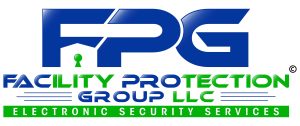 In today’s rapidly changing world, ensuring the safety and security of your employees and assets is of utmost importance. As a business owner, you need to take proactive measures to protect your business from potential threats. One effective way to do this is by installing an intercom system. An intercom system not only provides convenience and efficiency but also acts as a powerful security tool. In this comprehensive guide, we will explore the various benefits of an intercom system and how it can enhance your business security.
In today’s rapidly changing world, ensuring the safety and security of your employees and assets is of utmost importance. As a business owner, you need to take proactive measures to protect your business from potential threats. One effective way to do this is by installing an intercom system. An intercom system not only provides convenience and efficiency but also acts as a powerful security tool. In this comprehensive guide, we will explore the various benefits of an intercom system and how it can enhance your business security.
Benefits of an Intercom System
An intercom system offers a wide range of benefits that contribute to improving the overall security of your business. Let’s explore some of the key advantages in detail.
Enhanced Access Control
One of the primary benefits of an intercom system is its ability to provide enhanced access control. With an intercom system, you can control who enters your premises and ensure that only authorized individuals have access. By integrating an electronic locking system with your intercom, you can secure doors and security gates, allowing entry only to approved personnel.
Improved Communication
Clear and efficient communication is essential for any business. An intercom system enables seamless communication between different areas of your business premises. Whether it’s between employees in different departments or between staff and visitors, an intercom system ensures that communication is quick and effective.
Visitor Screening and Management
Controlling visitor access is a vital aspect of business security. An intercom system allows you to screen and manage visitors effectively. When a visitor arrives at your premises, they can identify themselves through the intercom system. Your staff can then verify their identity and decide whether to grant them access or not. This feature is particularly useful for scheduled visitors or when dealing with unexpected guests.
Deterrence of Unauthorized Individuals
The presence of an intercom system can act as a deterrent to unauthorized individuals. Potential intruders or troublemakers may think twice before attempting to gain access to your premises when they see an intercom system in place. The knowledge that their presence will be noticed and questioned adds an additional layer of security to your business.
Integration with Security Cameras
To further enhance your business security, you can integrate your intercom system with security cameras. This integration allows you to not only hear but also see the person at the door or gate. By combining an intercom with security cameras, you can visually verify the identity of visitors and make informed decisions regarding access.
Types of Intercom Systems
When considering an intercom system for your business, it’s essential to understand the different types available. Let’s explore three common types of intercom systems:
Wired Intercom Systems
Wired intercom systems are the traditional form of intercoms, where communication occurs through physical wiring connections. These systems are reliable and offer excellent sound quality. However, they require professional installation to lay the necessary wiring infrastructure.
Wireless Intercom Systems
Wireless intercom systems are a more flexible and convenient option as they eliminate the need for extensive wiring. They operate using wireless technology, allowing communication between different units without physical connections. Wireless intercom systems are easy to install and can be moved or expanded as needed.
IP-Based Intercom Systems
IP-based intercom systems utilize the internet protocol (IP) to transmit voice and video data. These systems can be accessed remotely, making them suitable for businesses with multiple locations or those that require centralized control. IP-based intercom systems offer advanced features, such as integration with other security devices and remote monitoring capabilities.
Choosing the Right Intercom System for Your Business
Selecting the right intercom system for your business requires careful consideration of your security needs and operational requirements. Here are some key factors to consider when choosing an intercom system:
Assessing Your Security Needs
Start by assessing your specific security needs. Consider factors such as the size of your premises, the number of entry points, and the level of access control required. Identify any unique requirements that your business may have, such as the need for video integration or integration with other security systems.
Considering Scalability and Future Expansion
It’s essential to choose an intercom system that can scale and accommodate future expansion. Consider whether the system can support additional units or whether it can be integrated with other security devices as your business grows.
Evaluating User-Friendliness and Integration Capabilities
An ideal intercom system should be user-friendly and intuitive for both employees and visitors. Evaluate the ease of use of the system’s interface and the clarity of audio communication. Additionally, consider whether the intercom system can integrate with other security devices, such as access control systems or security cameras.
Seeking Professional Assistance
Selecting and installing an intercom system can be complex, so it’s advisable to seek professional assistance. Consult with a reputable security company that specializes in intercom systems to ensure that you choose the right system for your business.
Installation and Maintenance of Intercom Systems
Installing an intercom system requires professional expertise to ensure optimal functionality and effectiveness. Let’s explore some key aspects of installation and maintenance:
Professional Installation Services
To ensure a seamless and effective installation, it’s recommended to engage professional installation services. Experienced technicians will have the necessary expertise to install the intercom system, including any wiring or network infrastructure required.
Regular Maintenance and System Upgrades
To maximize the lifespan and performance of your intercom system, regular maintenance is essential. Regularly check and test all components, including speakers, microphones, and cabling. Additionally, stay up to date with system upgrades and firmware updates to ensure compatibility with the latest technologies and security features.
Training and Familiarization
Once your intercom system is installed, provide training and familiarization sessions for your employees. Ensure that they understand how to use the system effectively, including features such as visitor screening, door release, and emergency communication.
Case Studies: How Businesses Benefit from Intercom Systems
Intercom systems have proven to be highly beneficial for businesses across various industries. Let’s explore some case studies to understand how different businesses benefit from intercom systems:
Hospitality Industry
In the hospitality industry, where providing a safe and welcoming environment is paramount, intercom systems play a crucial role. Hotels, restaurants, and resorts utilize intercom systems to communicate with guests, manage entry points, and ensure the security of their premises.
Office Buildings and Corporate Environments
Office buildings and corporate environments often have multiple entry points and a high volume of employees and visitors. Intercom systems enable efficient communication between different floors and departments, enhancing overall security and operational efficiency.
Healthcare Facilities
Healthcare facilities, such as hospitals and clinics, rely on intercom systems for effective communication between staff members, patients, and visitors. Intercoms simplify the process of calling for assistance, coordinating emergency responses, and managing access to restricted areas.
Educational Institutions
Intercom systems are integral to the security infrastructure of educational institutions. They enable seamless communication between administrative staff, teachers, and students. Intercoms also aid in managing visitor access and ensuring the safety of students and faculty members.
Best Practices for Maximizing Intercom System Security
To maximize the security benefits of your intercom system, it’s important to follow best practices. Here are some key practices to consider:
Implementing Access Control Policies
Establish clear access control policies and guidelines for your business. Train employees on the importance of strict adherence to these policies and ensure they understand their role in maintaining a secure environment.
Regular System Audits and Updates
Perform regular audits of your intercom system to identify any vulnerabilities or weaknesses. Keep the system up to date with the latest firmware updates and security patches to stay ahead of potential threats.
Employee Training and Awareness
Train your employees on the proper use of the intercom system, including visitor screening procedures and emergency communication protocols. Foster a culture of security awareness to ensure that everyone takes responsibility for maintaining a secure environment.
Monitoring and Surveillance
Integrate your intercom system with security cameras and other surveillance devices to enhance monitoring capabilities. Regularly review recorded footage and respond promptly to any suspicious activity or incidents.
Investing in an intercom system is a proactive step towards enhancing the security of your business. By providing enhanced access control, improved communication, and visitor screening capabilities, an intercom system can significantly contribute to the overall safety and well-being of your employees and assets.
Contact Us (877-762-6460) for a free consultation!
View Past Projects
—
 About Facility Protection Group
About Facility Protection Group
Facility Protection Group is a Certified Systems Integrator based in the Southeastern United States, specializing in electronic security services supporting both traditional and cloud based Access Control (Card Access), Video Surveillance / CCTV, Audio / Video Intercoms, and Intrusion Alarm Systems. Founded in 2018 and located in Tampa, Florida; Facility Protection Group has assembled a team that has a tremendous wealth of industry knowledge and experience.

 About Facility Protection Group
About Facility Protection Group